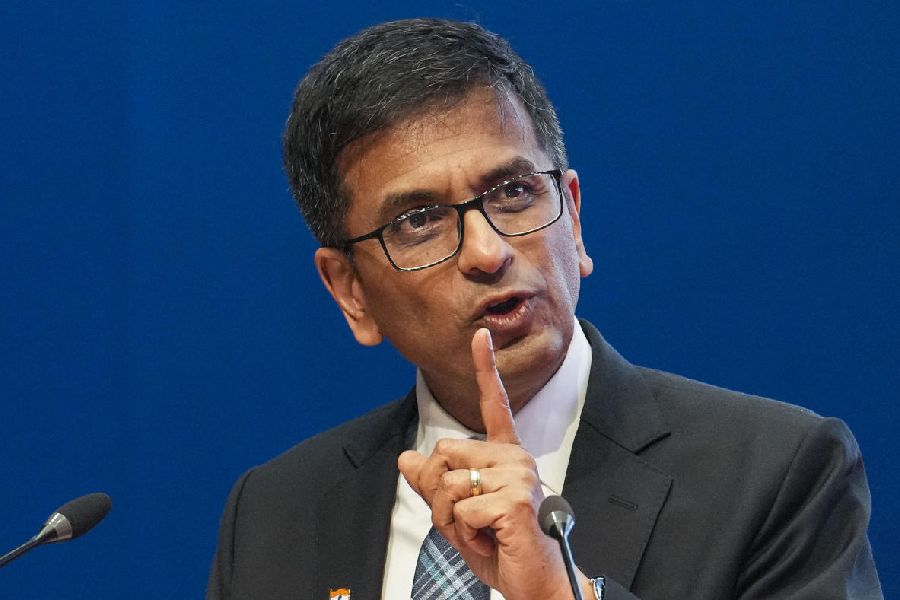Chief Justice of India D Y Chandrachud on Sunday said climate change amplifies the inequities faced by marginalised and disadvantaged groups.
Women, children, disabled individuals and indigenous people face heightened risks from climate change, including displacement, health inequities, and food scarcity, he said.
“Climate change amplifies existing inequalities, turning it into a human rights issue that particularly affects those whose rights are already compromised. Women, children, disabled individuals and indigenous people face heightened risks from climate change, including displacement, health inequities and food scarcity. Inequality thus becomes both a cause and consequence of climate change,” Justice Chandrachud said.
He was delivering the keynote address at the 11th Annual Conference of the Berkeley Centre on ‘Comparative Equality and Anti-Discrimination'.
He pointed out that the Inter-Governmental Panel on Climate Change (IPCC) highlighted that the impacts of warming fall disproportionately on the poor and vulnerable.
The CJI said wealthier individuals often have the means to invest in protective infrastructure and cooling systems during extreme heat whereas poorer communities lack such resources, making them more vulnerable to climate-related disasters.
Justice Chandrachud said ensuring climate justice requires recognising these differential impacts and actively involving affected communities in decision-making processes.
Such a participatory approach can foster more effective and equitable climate policies that truly reflect the needs and experiences of those most impacted, he pointed out.
Speaking about Artificial Intelligence, he said it has many beneficial uses but it can also be misused, providing novel and powerful tools for manipulative, exploitative and social control practices.
“When dealing with AI systems, we must ask where the data originates from and what biases it might harbour. Understanding the sources of our data is paramount in using AI systems that are fair and inclusive,” Justice Chandrachud noted.
He concluded his talk saying that equality is a moral, political and legal virtue, which holds all the social commitments together.
Except for the headline, this story has not been edited by The Telegraph Online staff and has been published from a syndicated feed.











